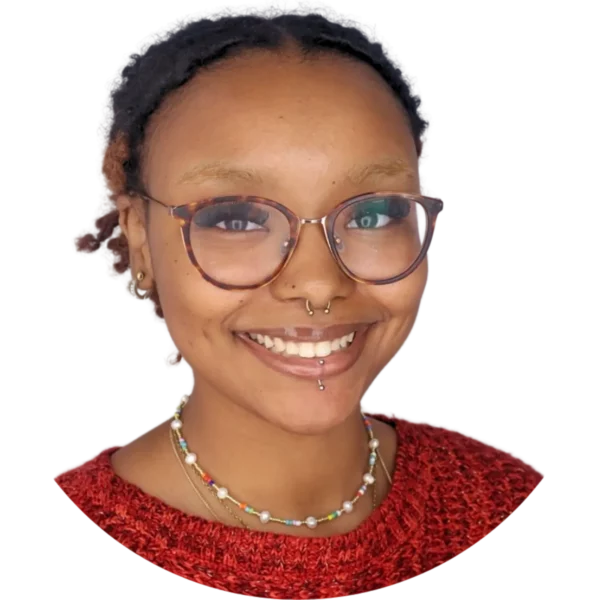SPECIALIZED OCD TREATMENT
With Our Expert Therapists in NJ

Online OCD treatment offers clients an opportunity to build the skills needed to overcome the challenges related to Obsessive Compulsive Disorder. Our Online therapists in New Jersey provide comprehensive, evidenced based therapy for OCD, helping clients overcome OCD & reclaim the joy of life.
OCD Treatment for Improved Mental Clarity
Obsessive-Compulsive Disorder (OCD) is a mental health condition that affects individuals across various ages and life circumstances. This condition manifests as a cycle of persistent, unwanted thoughts, images, or impulses—termed obsessions—which can provoke profound distress. To mitigate this stress and anxiety, individuals with OCD often resort to repetitive behaviors or rituals, known as compulsions. However, these compulsions inadvertently perpetuate the OCD cycle. The intensity, frequency, and content of obsessive thoughts and compulsive behaviors can significantly vary.Therapists at MBD are thoroughly trained in providing online therapy for OCD for NJ teens and adults
Common Obsessions treated in Therapy for OCD
Contamination Obsessions
Fear of coming into contact with perceived contaminated substances/things, such as:
- Body fluids
- Environmental contaminants
- Household chemicals
Violence/Harm Obsessions
- Fear of acting on an impulse to harm oneself
- Fear of acting on an impulse to harm others
- Fear of violent or horrific images in one’s mind
Responsibility Obsessions
- Fear of being responsible for something terrible happening
- Fear of harming others because of not being careful enough
Perfectionism-related Obsessions
- Excessive concern about evenness or exactness
- Fear of losing or forgetting important information
- Fear of making mistakes
Identity Obsessions
- Excessive concern with one’s sexual orientation.
- Excessive concern with one’s gender identity.
Religious/Moral Obsessions (Scrupulosity)
- Excessive concern with offending God, damnation, and/or concern about blasphemy
- Excessive concern with morality
Sexual Obsessions
Unwanted thoughts or mental images related to sex, including fear of:
- acting on a sex-related impulse
- sexually harming children, relatives, or others
- aggressive sexual behaviors towards others
False Memory Obsessions/Real Event Obsessions
- Excessive concern about things that happened in the past and what impacts they may have had.
- Excessive concern or fear of mis-remembering something “bad”
Relationship-Related Obsessions
- Excessive concern about whether one’s partner is “the one,” the partner’s flaws and qualities. relationships.
Common Compulsions treated in Therapy for OCD
Washing and Cleaning
- Washing hands excessively or in a certain way
- Excessive showering, bathing, tooth-brushing, grooming, or toilet routines
- Cleaning household items or other objects excessively
- Doing other things to prevent or remove contact with contaminants
Reassurance Seeking
- Asking for reassurance from another person related to the trigger
- Seeking confirmation or evidence to neutralize anxiety or stress through searching on the internet or confirmation from providers/trusted individuals
Checking
- Checking that you did not/will not harm others
- Checking that you did not/will not harm yourself
- Checking that nothing terrible happened
- Checking that you did not make a mistake
- Checking some parts of your physical condition or body
Repeating
- Rereading or rewriting
- Repeating routine activities (examples: going in and out through doorways, opening and closing doors, etc)
- Repeating body movements (example: tapping, touching, blinking)
- Repeating activities in “multiples”.
Mental Compulsions
- Mental review of events to prevent harm ( to prevent terrible consequences)
- Praying to prevent harm
- Counting while performing a task to end on a “good,” “right,” or “safe” number
- “Canceling” or “Undoing” (example: replacing a “bad” thought with a “good” thought to cancel it out)
Other Compulsions Addressed in Therapy for OCD
- Collecting/Hoarding Items with little to no significant relevance
- Putting things in order or arranging things until it “feels right”
- “Confessing” to get reassurance or to prevent consequences
- Avoiding situations that might trigger your obsessions
Unsure if OCD Treatment is right for you?
Although the symptoms of OCD may seem obvious on the surface, it’s important to recognize signs of other co-occurring mental disorders that must be assessed. When Looking for therapy for OCD, it is essential to connect with a trained provider who is well versed in OCD when seeking help for obsessive-compulsive disorder. Our OCD therapists in New Jersey know the characteristics of obsessive thought patterns.
OCD Treatment Options
Exposure & Response Prevention (ERP)
Exposure therapy is a psychological treatment that helps people confront their fears and overcome obsessive-compulsive disorder (OCD). It’s a key component of cognitive behavioral therapy (CBT)
Virtual Reality
Therapy (VRT)
VRT treats mental health concerns, including obsessive-compulsive disorder by allowing cliebnts to experience virtual simulations of true-to-life situational triggers for obsessions and compulsions.
Ketamine Assisted Psychotherapy (KAP)
KAP is accessible to New Jersey residents and has demonstrated significant efficacy in alleviating OCD symptoms. Research supports KAP’s effectiveness for treatment-resistant OCD.
CBT for Online OCD Treatment
Cognitive behavioral therapy focuses on changing thoughts and behaviors associated with the patterns of OCD obsessions and compulsions. CBT helps to identify negative thoughts that fuel OCD.
Medication-assisted OCD Treatment
Medication can alleviate symptom severity, but it requires thorough evaluation by a healthcare provider before prescription. Continuous assessment is necessary to adjust dosages or change medications as needed.
Find Relief with
Online Therapy for OCD
Our online therapy services help clients in OCD treatment to address symptoms through the use of Exposure Therapy, Cognitive Behavioral therapy, Acceptance and Commitment Therapy and Mindfulness Based Therapies. Clients in therapy for OCD may also opt in for less traditional approaches such as Creative Art Therapies.
OCD Treatment at Mind by Design
Only trained therapists can diagnose OCD. During online therapy for OCD, sessions, your therapist will look for three things while making an assessment:
- The person has obsessions.
- The person engaged in compulsive behaviors.
- The obsessions and compulsions disrupt the person’s life, take a lot of time and get in the way of important activities the person values, such as working, going to school, or spending time with friends.
See What Clients Are Saying About Their Experiences in OCD Treatment
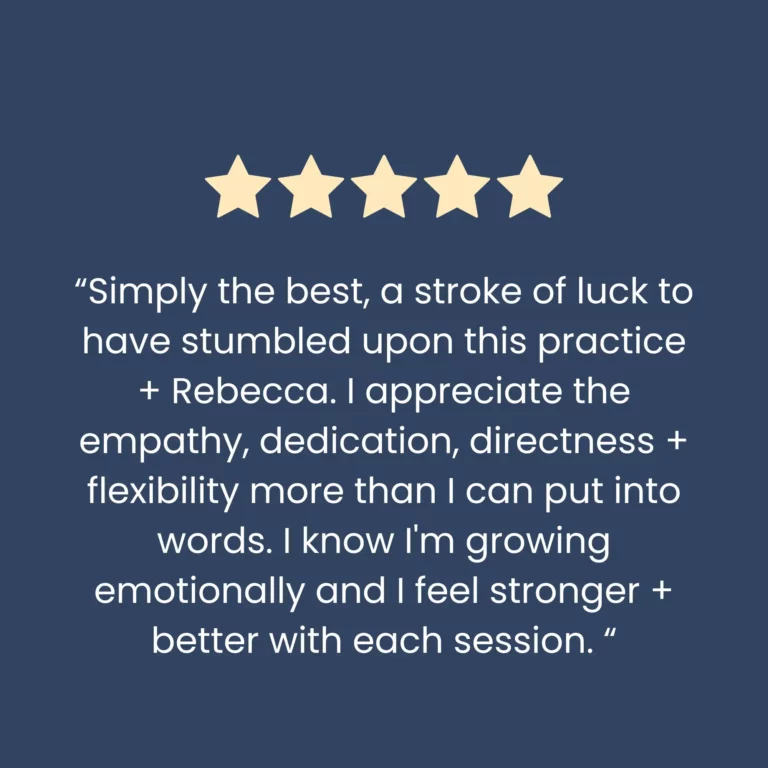

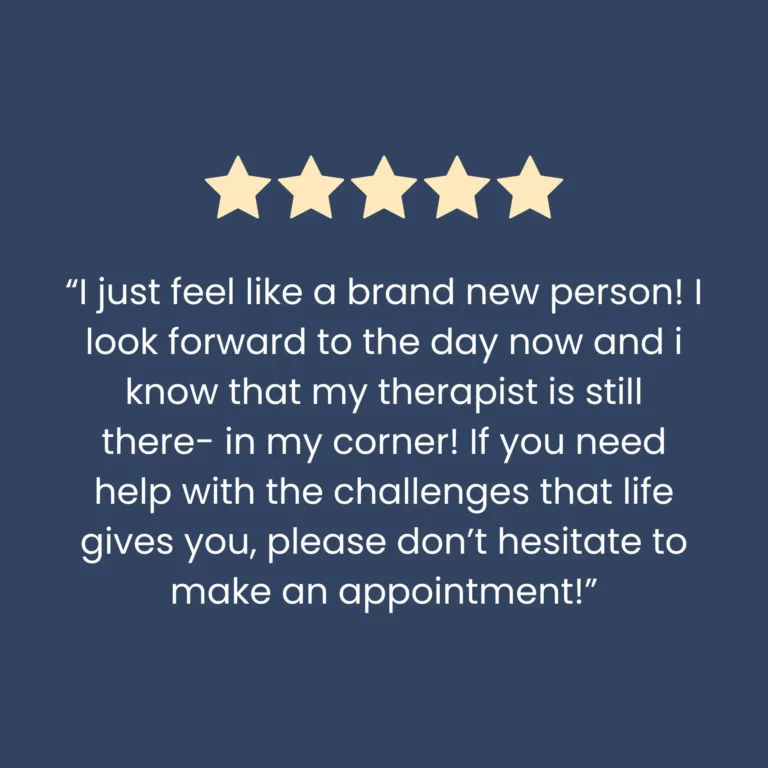
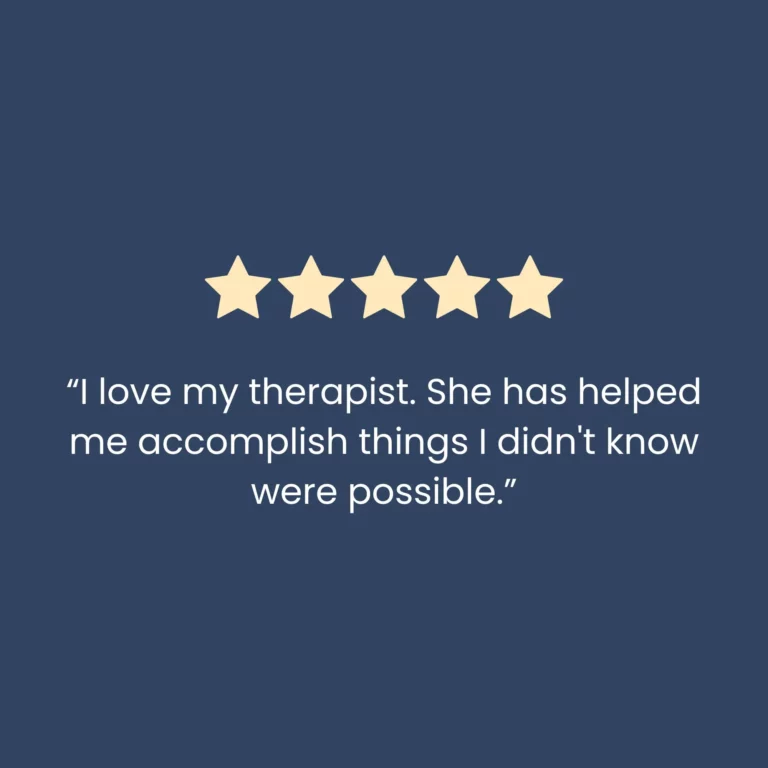
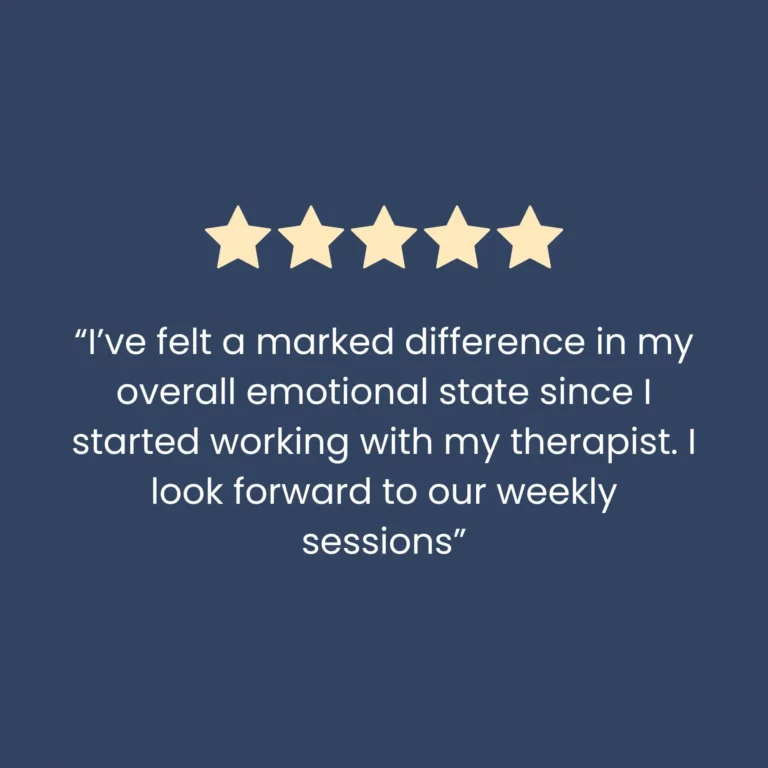
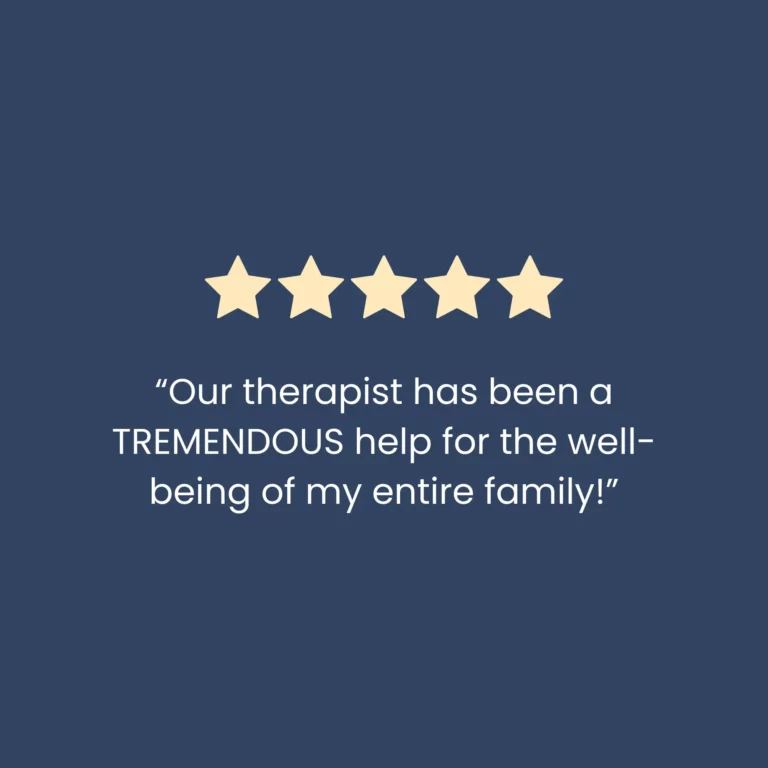
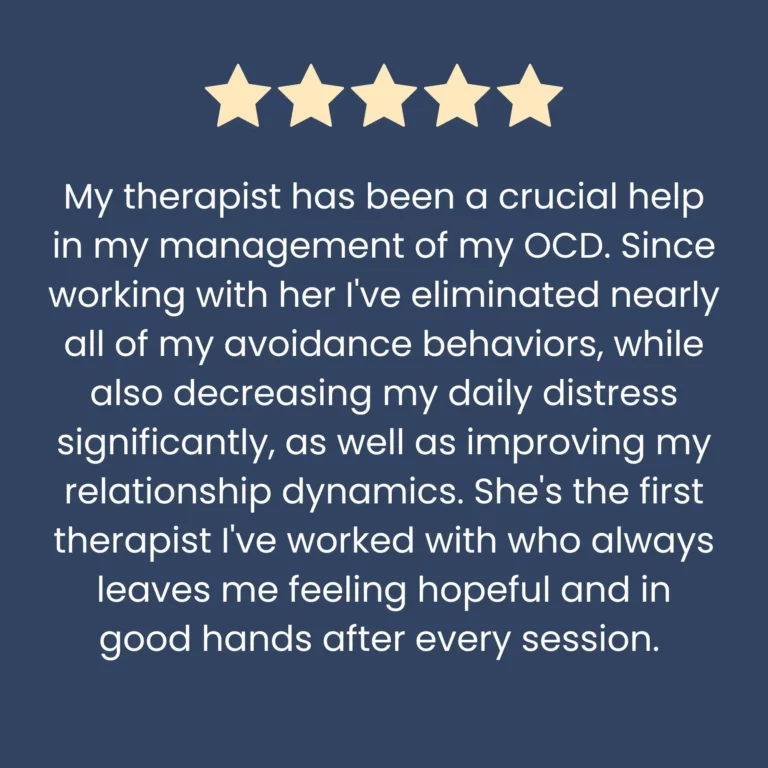
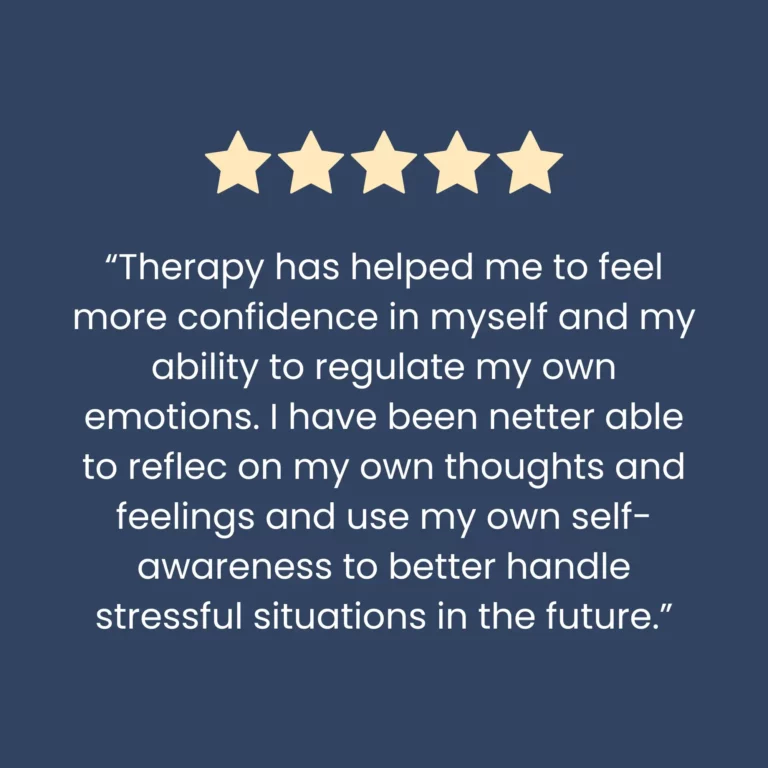
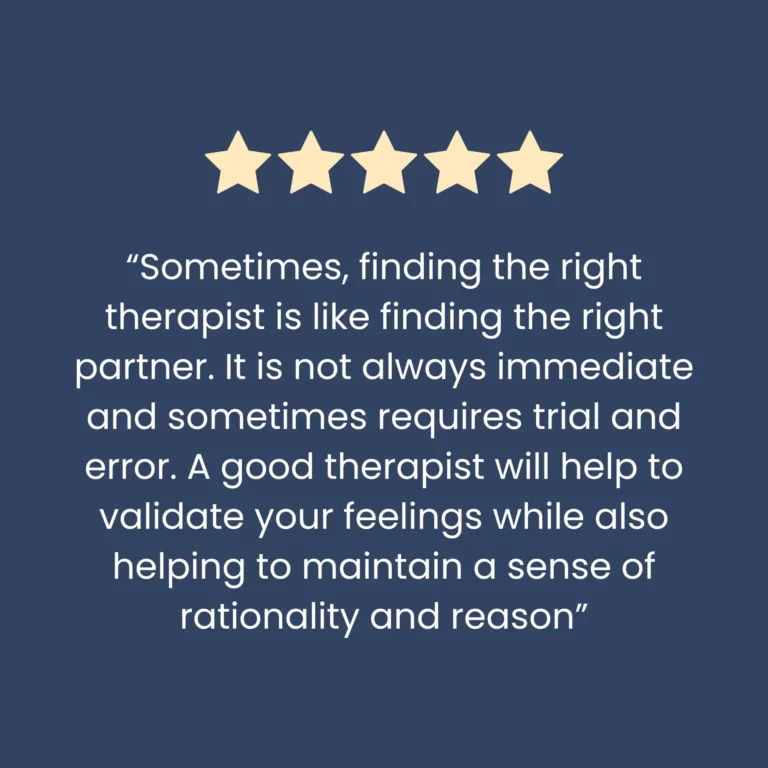
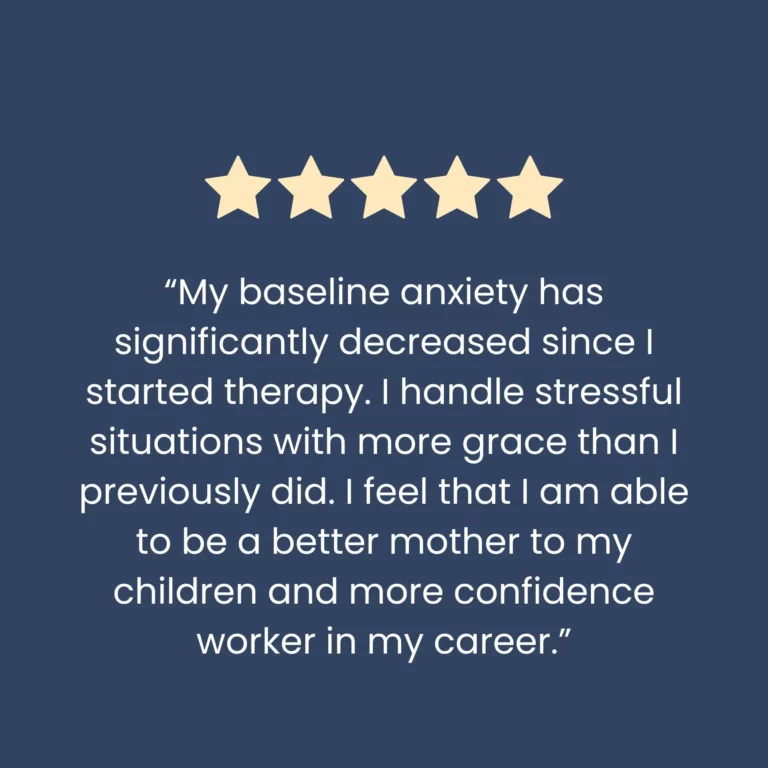
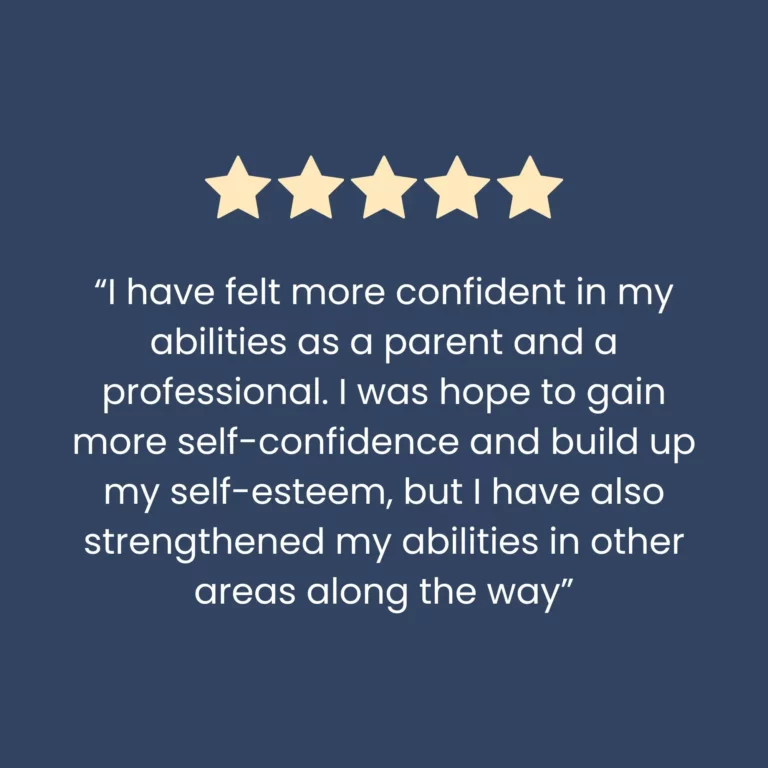

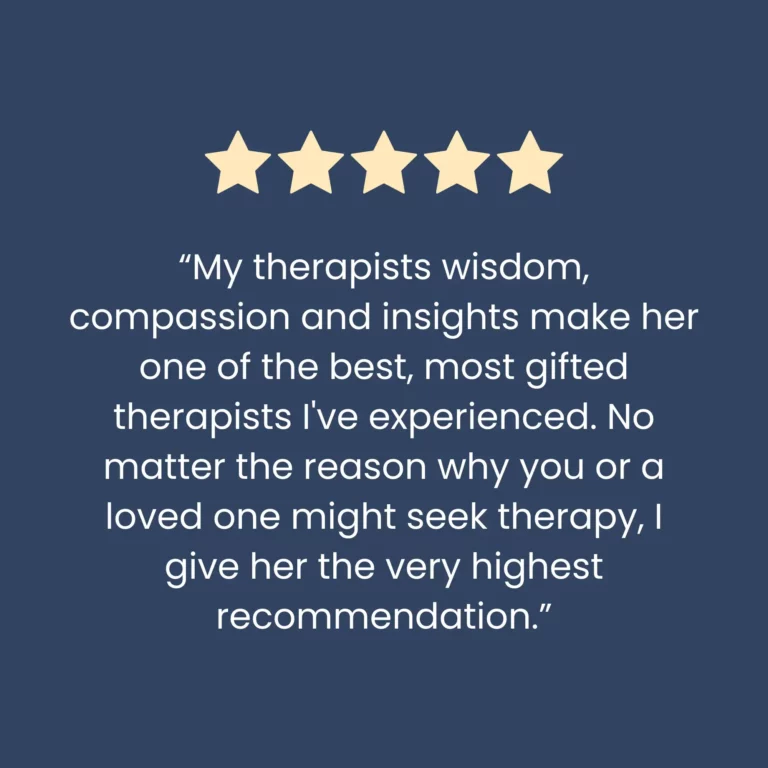
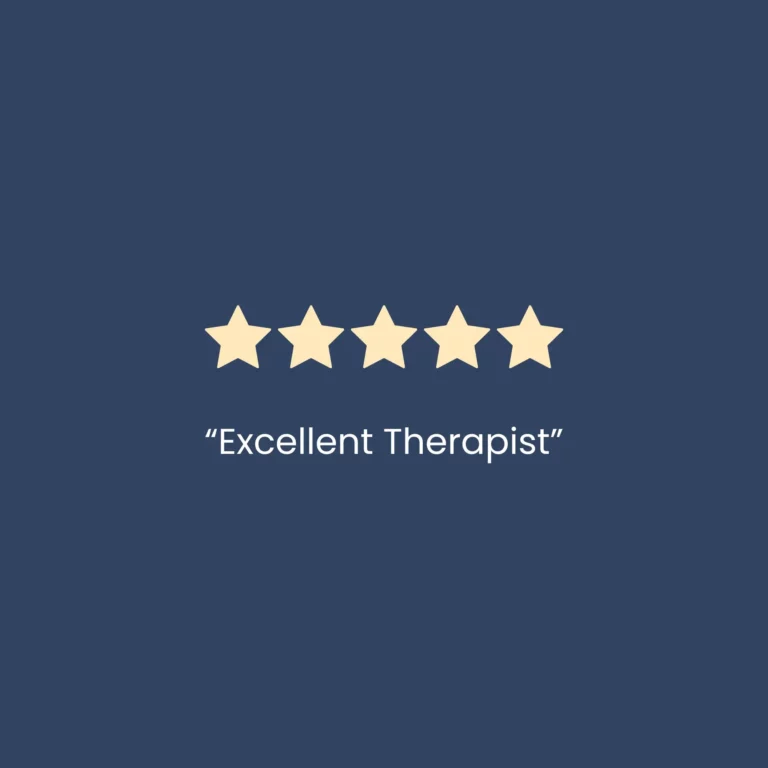
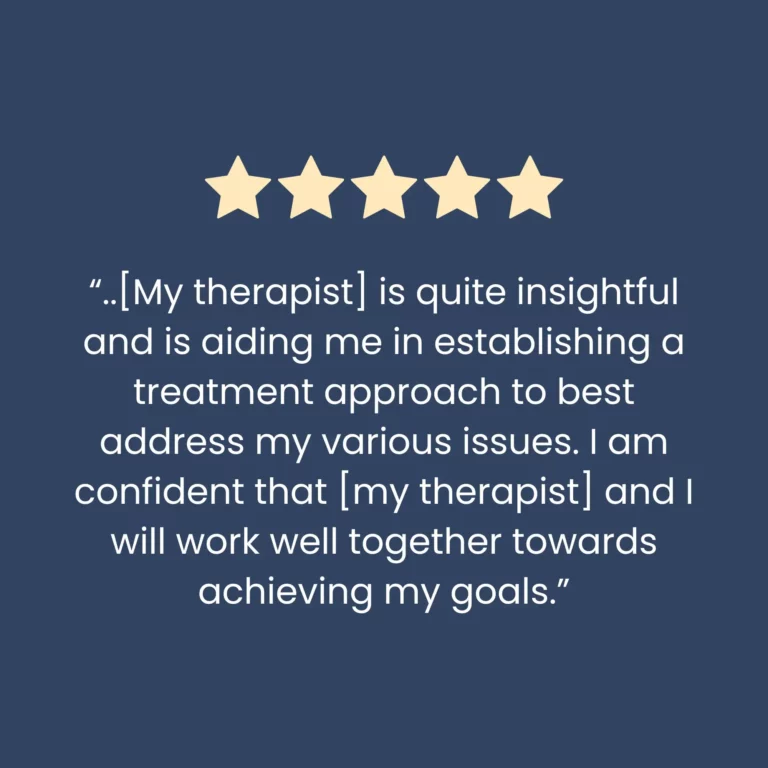
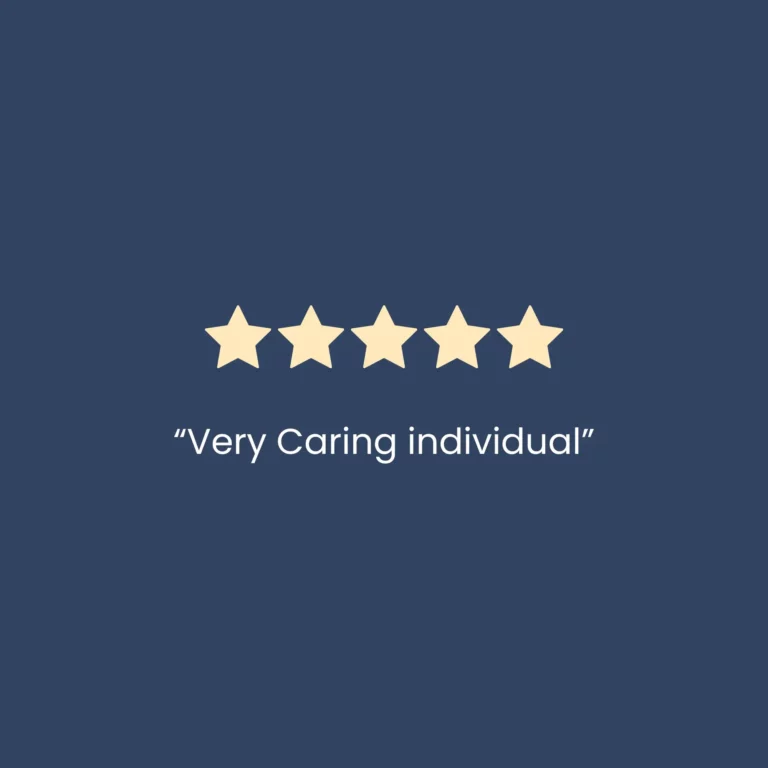
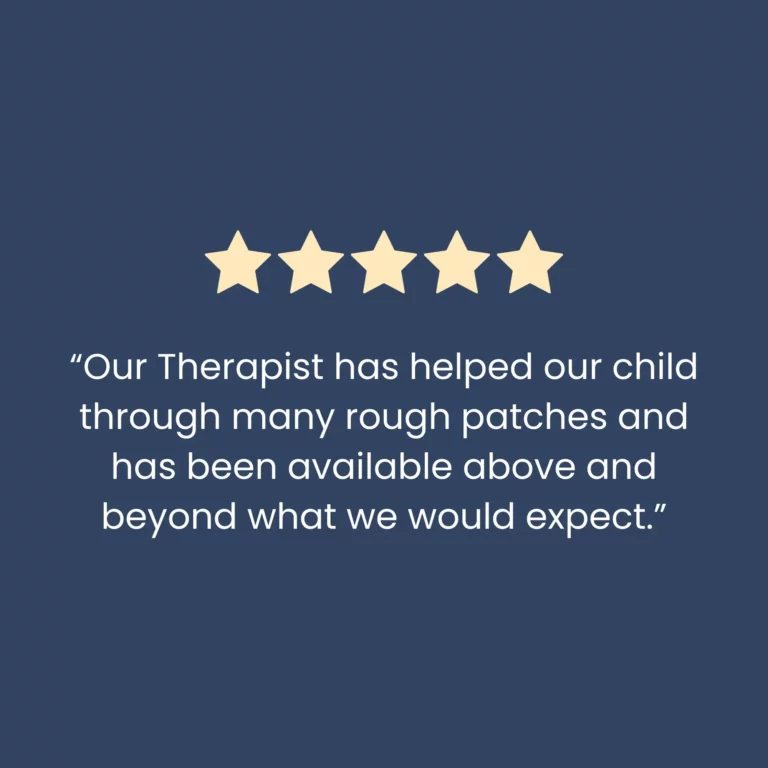

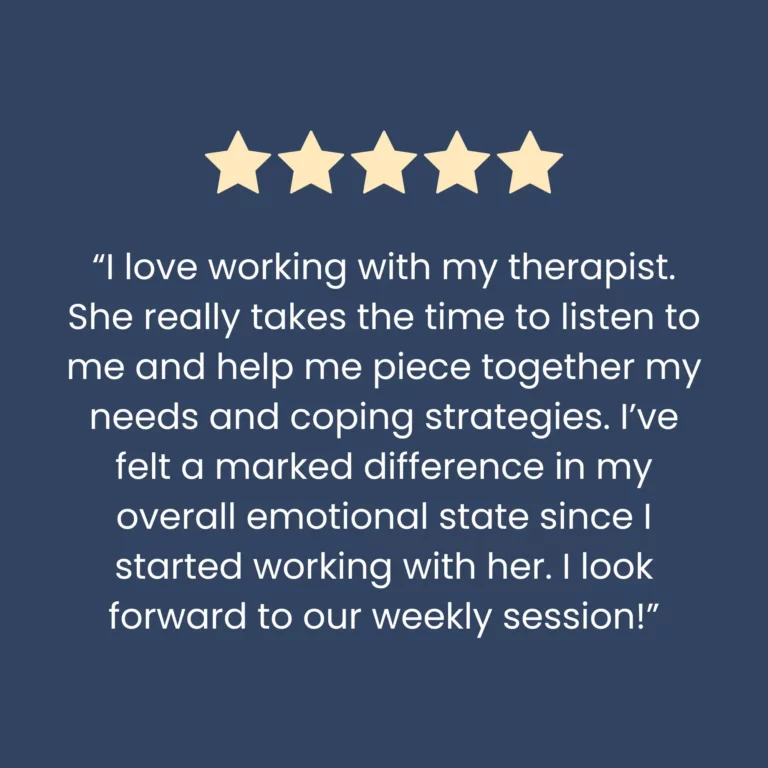

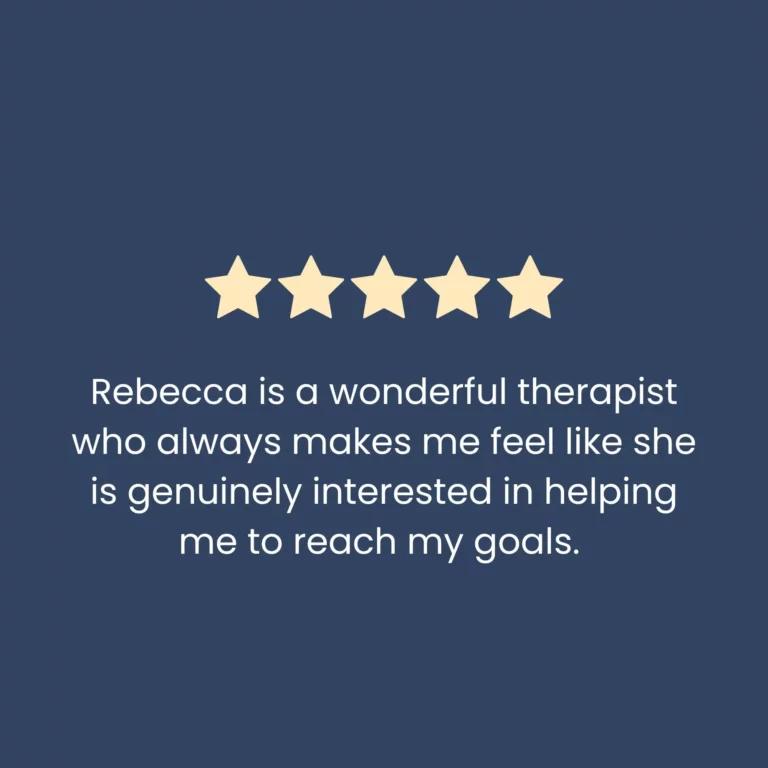
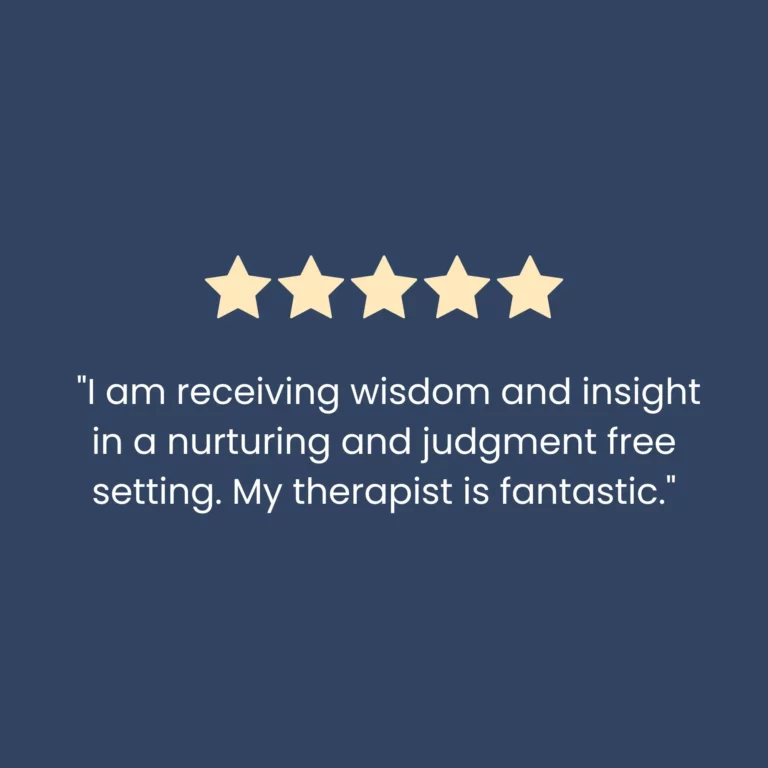
FAQ's About Online Treatment for OCD in NJ
Where are you located? I need a therapist near me
We are fully online, which means that your therapy sessions will be help via video call on our HIPAA compliant Platform. Anyone in New Jersey can access our therapy services
How do I get started as a new client?
New Clients can reach out to us directly via call, text or email here:
Does my insurance cover my visits?
We provide”Courtesy Billing” for clients who are using the Out-of-network insurance benefits.
Our Insurance Page might answer your questions about your insurance information, cost and OON coverage.
What are out-of-network benefits?
Visits our FAQ About Insurance to learn more about OON coverage for mental health services. We can also check your benefits for you. When using OON benefits, patients typically pay the full cost of the treatment upfront and then file a claim with their insurance company for reimbursement.
Is Online Therapy As Effective As In-Person Therapy?
Online therapy is essentially face-to-face counseling, just conducted remotely. Studies show that tele-therapy is as effective as traditional counseling. Professional organizations and state governments recognize its benefits and have set regulations for it. However, like any therapy, its success in achieving your goals isn’t guaranteed. It’s important to discuss with your therapist whether tele-therapy is working for you.
How Should I Prepare for My First Session?
Showing up is all that you need to do! But if you really want to get the most out of session, it could help to take some time to think about what you want from therapy. It helps to write down your goals, questions you have or things that you feel are important to share.
Do you offer traditional talk therapy?
of course! though we have some unconventional therapy approaches, we are rooted in evidenced based practices. Talk therapy is a major player in the therapy room! See What we Treat and Integrative Services for more information
Is Virtual Counseling Suitable for Everyone?
Online therapy might not be as effective for individuals with chronic suicidal thoughts, severe trauma, significant mental health history, or those recently in intensive care. Such cases often benefit more from traditional, in-person counseling. We’ll help you decide if our online services are right for you during your intake and evaluation.
Can I Change Therapists If I'm Not Happy?
Yes, you can switch therapists to another provider within the practice, or we can provide you a referral if preferred. We want to ensure that your time and effort are well spent, and that you are getting the relief you need, that’s why we work collaboratively with each other in the practice, as well as outside therapists who we know and trust.
How Do I Know If Therapy Is Helping?
You should feel like you’re making progress. Signs it’s working include:
- Feeling comfortable talking to your therapist
- Your therapist respects boundaries
- You’re moving towards your goals
- You feel listened to
You’re doing better in life - Your self-esteem is getting better
What is your cancellation policy?
We ask that clients provide at least 24 hours notice in the event that they need to cancel to avoid the 50% cancellation fee. we understand that life happens and do our best to be flexible & reschedule.
What Geographic Areas Are Served?
Currently, we serve clients in New Jersey and are expanding to other states as telehealth laws evolve. While telehealth offers the convenience of attending sessions from anywhere, state laws require clients to be in-state during their session.
Is Online Therapy Easy to Use for Non-Tech-Savvy People?
Yes, it’s pretty simple to access sessions. You’ll need basic internet skills, such as opening and visiting the patient link sent to you via email. It’s similar to video chatting like Facetime or Zoom. We can also walk you through it on the phone the first time to ensure a strong connection
What Questions Should I Ask My New Therapist?
Feel free to ask anything. Some good questions are:
- How often will we meet?
- What do you specialize in?
- What experience do you have with my issue?
- What outcomes can I expect?
- How will I know I’m progressing?
- How long do you usually work with clients?
- How will we set my treatment goals?
What is the difference between associate therapists & fully licensed therapists?
Our Qualifications:
Our founder, Rebecca Sidoti, is a highly qualified, state-licensed therapist and supervisor with extensive training in anxiety related disorders and innovative treatment such as Ketamine Therapy. Mind by Design Counseling adheres to standards set by the our governing counseling boards.
To see each providers credentials, training and licenses, visit our “Meet the Therapists” Page to learn more.
- LAC/LSW are therapists who may practice clinical work under the supervision of a fully licensed therapist.
- LPC/LCSW are therapists who have completed the necessary clinical hours post-graduation under supervision and can practice clinical work independently.




